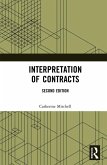Boilerplate, the fine print of standard contracts, is more prevalent than ever in commercial trade and in electronic commerce. But what is in it, beyond legal technicalities? Why is it so hard to read and why is it often so one-sided? Who writes it, who reads it, and what effect does it have? The studies in this volume question whether boilerplate is true contract. Does it resemble a statute? Is it a species of property? Should we think of it as a feature of the product we buy? Does competition improve boilerplate? Looking at the empirical reality in which various boilerplates operate, leading private law experts reveal subtle and previously unrecognized ways in which boilerplate clauses encourage information flow, but also reduce it; how new boilerplate terms are produced, and how innovation in boilerplate is stifled; how negotiation happens in the shadow of boilerplate, and how it is subdued. They offer a new explanation as to why boilerplate is often so one-sided. With emphasis on empiricism and economic thinking, this volume provides a more nuanced understanding of the 'DNA' of market contracts, the boilerplate terms.
Dieser Download kann aus rechtlichen Gründen nur mit Rechnungsadresse in A, B, BG, CY, CZ, D, DK, EW, E, FIN, F, GR, HR, H, IRL, I, LT, L, LR, M, NL, PL, P, R, S, SLO, SK ausgeliefert werden.









